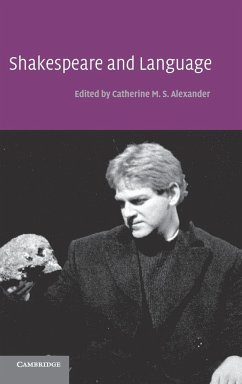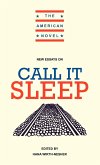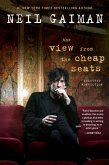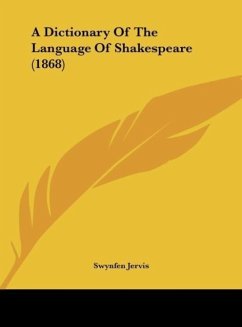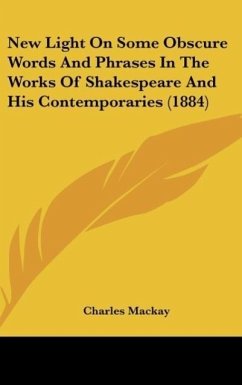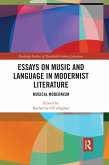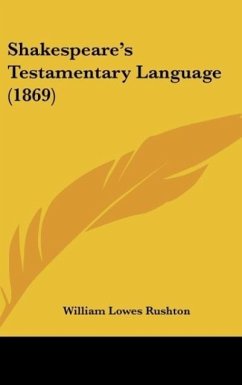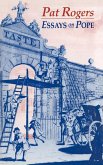Short description/annotation
Selection of the best essays from the last forty years on Shakespeare's use of language.
Main description
Shakespeare and language is an area of study that here includes style, speech, sound and sex. As the foremost Shakespeare publication, Shakespeare Survey has been well placed to reflect trends and developments in academic approaches to Shakespeare and to language and this collection of essays considers the characteristics, excitement and unique qualities of Shakespeare's language, the relationship between language and event, and the social, theatrical and literary function of language. A new introduction, by Jonathan Hope, explicates the differences between Shakespeare's language and our own, provides a theoretical and contextual framework for the pieces that follow, and makes transparent an aspect of Shakespeare's craft (and the critical response to it) that has frequently been opaque.
Table of contents:
1. Shakespeare and Language: an introduction Jonathan Hope; 2. Shakespeare's language and the language of Shakespeare's time Stephen Booth; 3. The foundations of Elizabethan language Muriel St. Clare Byrne; 4. Shakespeare's talking animals Terence Hawkes; 5. Some functions of Shakespearian word-formation Vivian Salmon; 6. Shakespeare and the tune of the time Bridget Cusack; 7. Shakespeare's Romeo and Juliet: the places of invention Jill L. Levenson; 8. Shakespeare's thematic modes of speech: Richard II to Henry V Robert Hapgood; 9. Hamlet and the power of words Inga-Stina Ewbank; 10. The art of the comic duologue in three plays by Shakespeare Robert Wilcher; 11. Hamlet's Ear Philippa Berry; 12. 'Voice potential': language and symbolic capital in Othello Lynne Magnusson; 13. The aesthetics of mutilation in Titus Andronicus Albert H. Tricomi; 14. 'Time for such a word': verbal echoing in Macbeth George Walton Williams; 15. Household words: Macbeth and the failure of spectacle Lisa Hopkins; 16. Late Shakespeare: style and the sexes Russ McDonald.
Hinweis: Dieser Artikel kann nur an eine deutsche Lieferadresse ausgeliefert werden.
Selection of the best essays from the last forty years on Shakespeare's use of language.
Main description
Shakespeare and language is an area of study that here includes style, speech, sound and sex. As the foremost Shakespeare publication, Shakespeare Survey has been well placed to reflect trends and developments in academic approaches to Shakespeare and to language and this collection of essays considers the characteristics, excitement and unique qualities of Shakespeare's language, the relationship between language and event, and the social, theatrical and literary function of language. A new introduction, by Jonathan Hope, explicates the differences between Shakespeare's language and our own, provides a theoretical and contextual framework for the pieces that follow, and makes transparent an aspect of Shakespeare's craft (and the critical response to it) that has frequently been opaque.
Table of contents:
1. Shakespeare and Language: an introduction Jonathan Hope; 2. Shakespeare's language and the language of Shakespeare's time Stephen Booth; 3. The foundations of Elizabethan language Muriel St. Clare Byrne; 4. Shakespeare's talking animals Terence Hawkes; 5. Some functions of Shakespearian word-formation Vivian Salmon; 6. Shakespeare and the tune of the time Bridget Cusack; 7. Shakespeare's Romeo and Juliet: the places of invention Jill L. Levenson; 8. Shakespeare's thematic modes of speech: Richard II to Henry V Robert Hapgood; 9. Hamlet and the power of words Inga-Stina Ewbank; 10. The art of the comic duologue in three plays by Shakespeare Robert Wilcher; 11. Hamlet's Ear Philippa Berry; 12. 'Voice potential': language and symbolic capital in Othello Lynne Magnusson; 13. The aesthetics of mutilation in Titus Andronicus Albert H. Tricomi; 14. 'Time for such a word': verbal echoing in Macbeth George Walton Williams; 15. Household words: Macbeth and the failure of spectacle Lisa Hopkins; 16. Late Shakespeare: style and the sexes Russ McDonald.
Hinweis: Dieser Artikel kann nur an eine deutsche Lieferadresse ausgeliefert werden.

